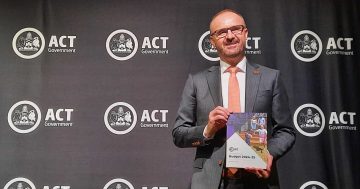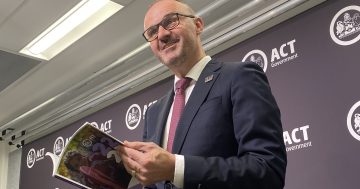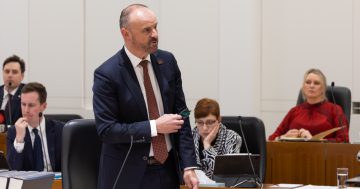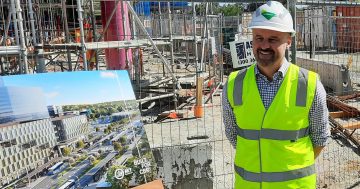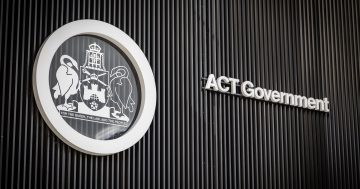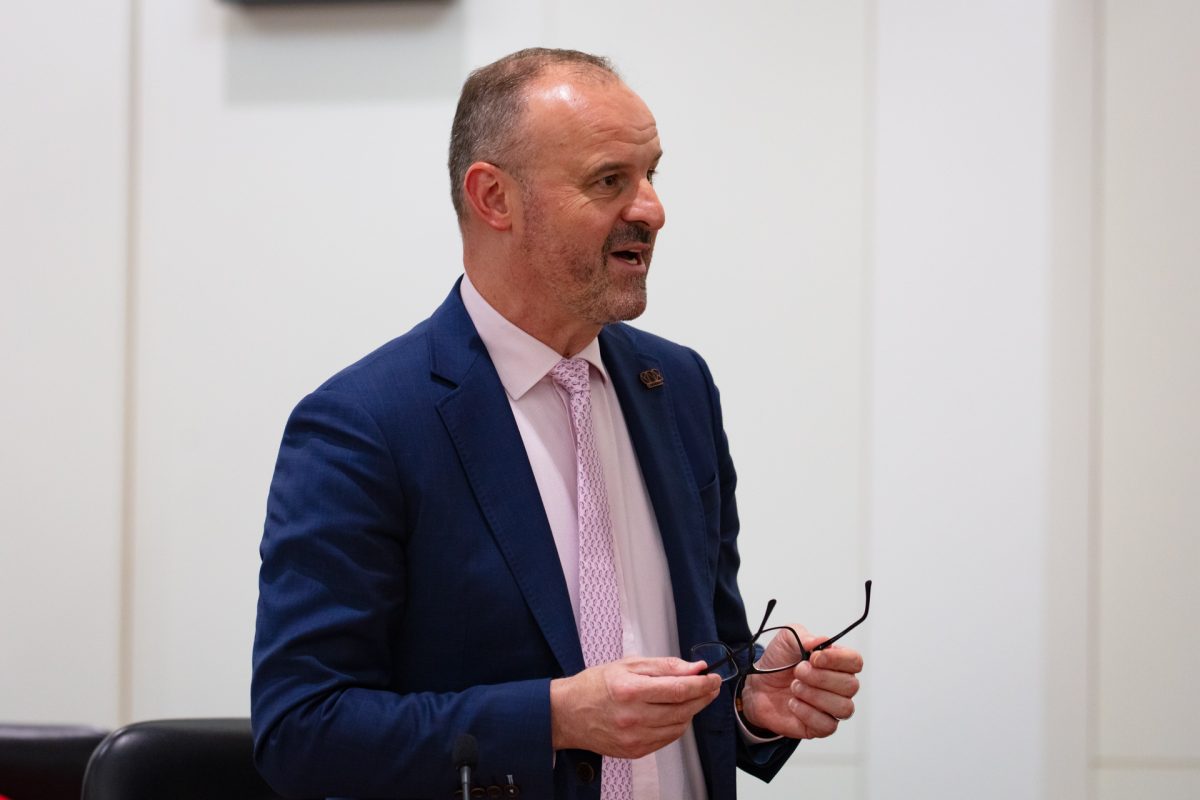
Chief Minister Andrew Barr: confident ACT will avoid recession. Photo: Thomas Lucraft.
The ACT Budget, to be handed down later today, is headed back to balance as early as 2025, buoyed by increased GST payments due to the Territory’s growing population, payroll tax from a booming labour market and an underspend in infrastructure.
But net debt will continue to grow in coming years to still be about $10 billion as the Barr Government manages major infrastructure projects, including a clutch of what Chief Minister Andrew Barr called one-in-50-year builds that will also likely need Commonwealth support.
In an interview with Region ahead of today’s budget, Mr Barr said the ACT’s financial position was improving after the deficit blow-out of the pandemic.
This was due to the ACT’s increased population finally being recognised in GST allocations and other Commonwealth funding streams and payroll tax overtaking rates as a revenue source.
“So our share of the GST pool has increased a little, so our single largest revenue source, which is the GST, it’s about a quarter of all Territory revenue, has lifted to where it really should be,” he said.
Mr Barr said payroll tax had overtaken rates to become the Territory’s biggest own-source revenue item.
The only revenue downside had been the dampening impact of interest rates on land sales, which meant that for the first time in a while, the Suburban Land Agency had land available for sale over the counter.
Mr Barr said multiple family registrations in recent oversubscribed ballots had masked this reduced demand.
“So even when the ballot occurs and people win the ballot, they’re not coming to buy their block,” he said.
Mr Barr said the government had also been unable to spend all of the $900 million previously set aside for infrastructure due to “market capacity constraints”, which had also held up the bottom line.
The other short-term boost for the next two years was the Commonwealth’s $50 million injection for social housing, which is due to land in the Territory’s account by the end of the week.
Mr Barr said the budget could return to balance as early as the year after next, but certainly the year after that.
“The journey back from the peak deficit during COVID back to balance, we’ll be able to present that pathway in this budget,” Mr Barr said.
High interest rates were the main headwinds for the Territory, but although there would be a slowing of growth, Mr Barr did not think the ACT would slip into recession due to its growing population.
“That will make it the 33rd consecutive year of economic growth,” he said.
Mr Barr said money had been set aside in today’s budget for the Calvary takeover, including transition costs and whatever compensation may need to be paid to Calvary Health Care and the new northside hospital over the forward estimates.
He said the budget also endeavoured to reduce inequality in Canberra through energy rebates for low-income Canberrans struggling with the rising cost of living.
The Utilities Concession eligibility criteria will be expanded to include anyone with a Commonwealth Health Care Card, adding 12,000 more households and taking the total number of eligible households to 43,800, nearly a quarter of Canberra households.
There will also be a one-off increase of $50 to the Utilities Concession, from $750 to $800 in 2023-24, and an additional payment of $250 to households on Housing ACT’s priority housing waiting list.
The government has already announced much of the budget, which Mr Barr will hand down in the Legislative Assembly at 5 pm.













